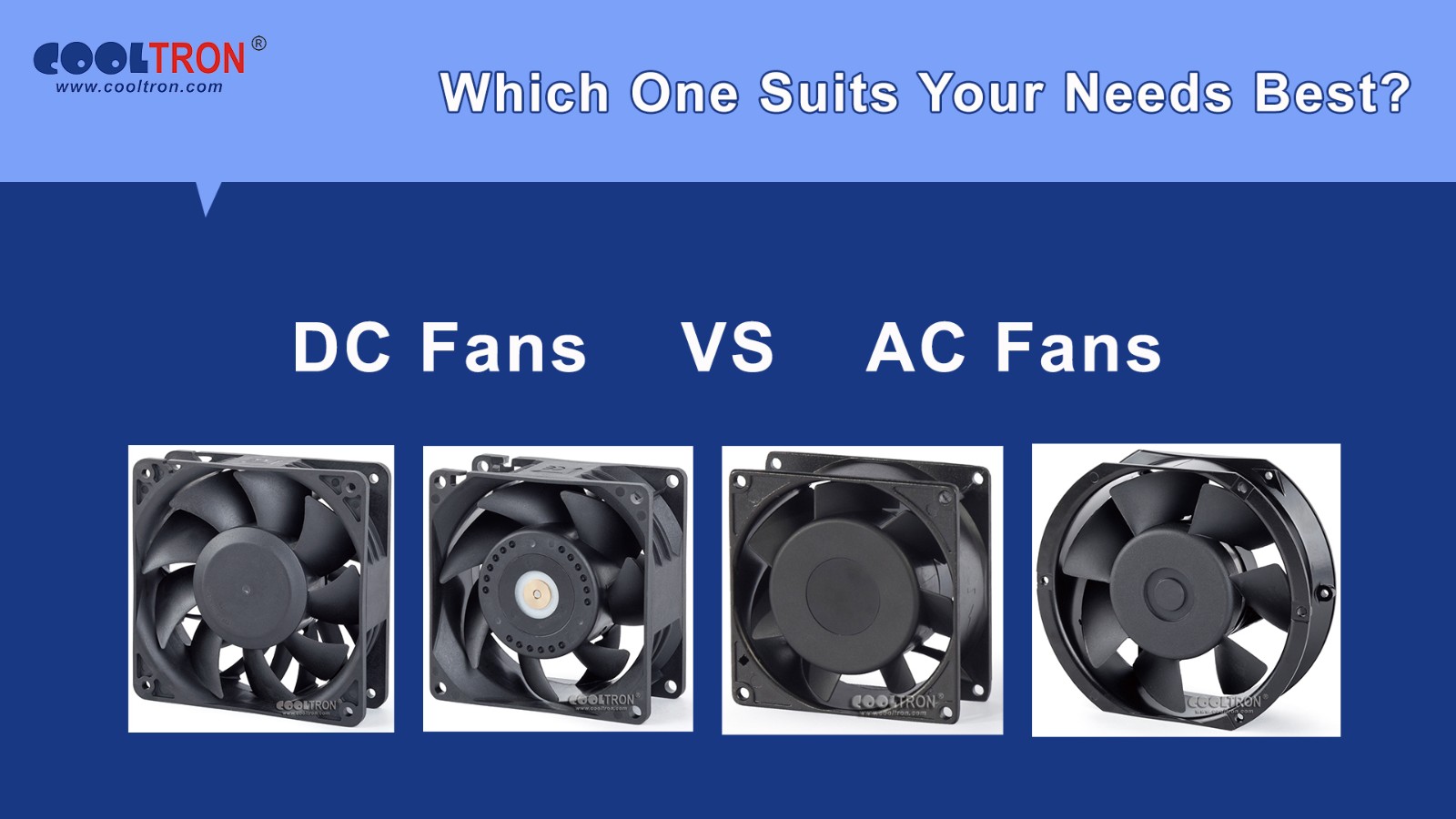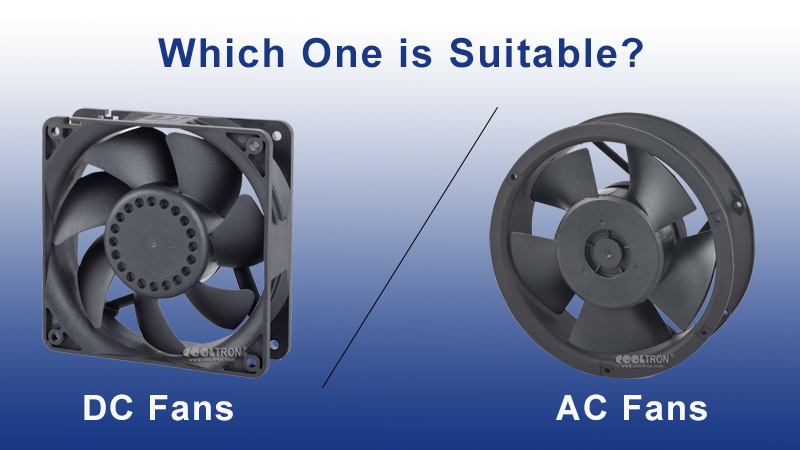When it comes to choosing the right fan for your industrial needs, understanding the differences between DC fans and AC fans is crucial. Both types of fans have their own distinct advantages and applications, and selecting the right fan can significantly impact performance, energy efficiency, and cost savings. In this article, Cooltron delves into the key differences between DC fans and AC fans to help you make an informed decision.

Introduction to DC Fans and AC Fans
DC fans are powered by direct current, meaning they receive a constant voltage from power sources such as batteries or solar panels. DC fans are renowned for their efficiency, as they can better control speed and consume less energy compared to AC fans. Additionally, DC fans typically have a longer lifespan due to their operation at lower voltages.
On the other hand, AC fans are powered by alternating current, typically sourced from wall outlets. These fans are often more robust and deliver consistent performance. AC fans are widely used in various industrial applications where a stable power supply is available.

Key Differences
1. Energy Efficiency
DC fans generally consume less power compared to AC fans, making them a more energy-efficient choice. This efficiency is particularly beneficial in applications where energy conservation is a priority.
2. Speed Control
DC fans offer superior speed control, often providing a wider range of speed settings. This flexibility allows for better customization to meet specific cooling or ventilation needs.
3. Performance and Reliability
AC fans are often preferred for their robust and consistent performance. They are designed to handle a steady power supply and are less likely to be affected by voltage fluctuations.
4. Cost and Maintenance
While DC fans may have a higher initial cost due to their advanced technology, they generally require less maintenance and have lower operational costs in the long run. AC fans, although cheaper initially, may incur higher energy costs over time.
5. Applications
· Industrial Settings: AC fans are typically used in environments where a consistent power supply is available and where robust performance is required.
· Renewable Energy Projects: DC fans are ideal for off-grid or renewable energy projects, such as solar-powered ventilation systems.
· Battery-Operated Systems: DC fans are suitable for battery-operated systems due to their lower energy consumption.
Conclusion
Now that you understand the differences between industrial DC fans and AC fans, you can choose the fan that best meets your requirements. It is crucial to purchase these industrial cooling fans from a trusted supplier like Cooltron. Since 1999, Cooltron is a globally recognized supplier of various industrial cooling fans including DC Blowers & fans, AC Blowers & fans, EC fans & Blowers, etc.Please click >> Inquire Now !!!